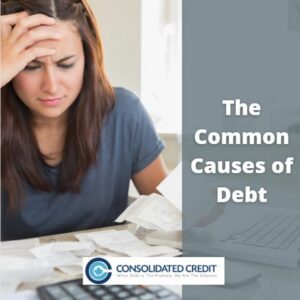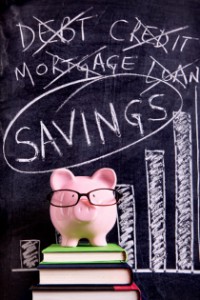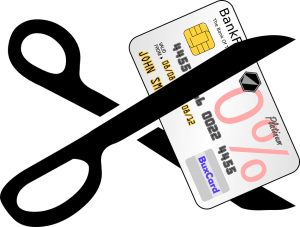The Different Types of Debt
How to use credit and maintain a healthy financial outlook
Nearly every Canadian, young and old, will accumulate different types of debt at some point in their lives. Often, debt begins during college or university with your first credit card – and continues to accumulate with car loans, mortgages, family expenses and household bills. In fact, debt has become so prevalent that the average Canadian now owes $1.63 for every dollar of income they earn. Unfortunately, this level of debt is simply not sustainable over the long-term.
The good news is using credit doesn’t mean you have to face debt problems. When used responsibly, credit can be an effective tool to help you maintain a healthy financial outlook.
The info below can help you better understand debt and how to handle your debts effectively. If your finances are already causing you trouble, Consolidated Credit can help. Call us today at (844)-402-3073 to speak with a trained credit counsellor or request a free Debt & Budget Analysis.
Secured Debt vs. Unsecured Debt
The main distinction between the various types of debt is whether those debts are secured or unsecured:
Secured debts are those in which some form of collateral is offered in case you fail to pay what is owed. A good example of a secured debt is your mortgage or auto loan. If you don’t pay these debts on time and the accounts become delinquent, you can lose your house or car, respectively.
Unsecured debts don’t have any collateral. The most common types of unsecured debts are your credit card debts. Because these debts are not secured with any collateral, your creditors cannot take away any of your assets without a court order. However, if you fail to pay, your debts may go to collections.
Debt Consolidation: Home Equity Loans
When faced with unmanageable levels of debt, some consumers turn to home equity loans to pay off their unsecured creditors. While this debt relief option can be effective, you could also find yourself in serious trouble if you face any financial hardship before paying off the loan.
Unlike credit card debts, the home equity loan is secured. This means if you fail to pay, you can potentially lose your home.
Installment Debt vs. Revolving Debt
Installment debts are typically secured debts that are paid on an installment payment schedule. This means the amount you pay each month is fixed and does not change, regardless of how much you owe. Most mortgages, car loans or finance payments are considered installment debts.
Revolving debts are typically unsecured, such as your credit card, and are paid on a revolving payment schedule. This means the amount you are required to pay each month changes based on how much you owe.
Debt Relief: Your Revolving Debts
While installment debts are easier to factor into your monthly budget, the varying nature of revolving debts makes them more difficult to plan for on a monthly basis. However, revolving debts are good candidates for a debt reduction strategy if you are trying to reduce your debt load.
Reducing credit card debt can effectively provide financial relief and help to build a healthy financial future. To do this, you may wish to pay more than the minimum monthly payment requirements on your credit cards. Setting up an installment payment schedule on your revolving debts where you pay a fixed amount each month will typically minimize the interest you pay and the amount of time it takes to pay off your debts.
Additional Resources
Are you struggling to pay of different types of debt, from your mortgage to your credit card? If you are facing severe financial distress and have explored every possible solution, bankruptcy may be the only solution left to help get you back on the path of financial stability. But before you file, call Consolidated Credit to discuss your finances with a trained credit counsellor. They may be able to offer free advice and direct you to options you may not have considered. Call us at (844)-402-3073 for a free consultation or get started online with a Free Debt Analysis.
Talk to a trained credit counsellor now for a free debt and budget assessment so you can see if a debt management program is the right debt relief solution for you!




